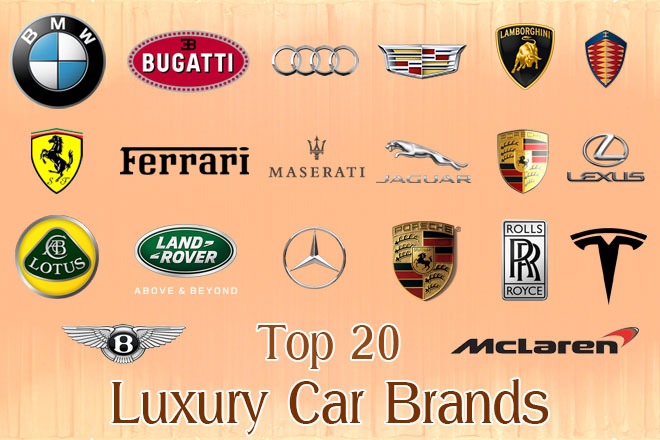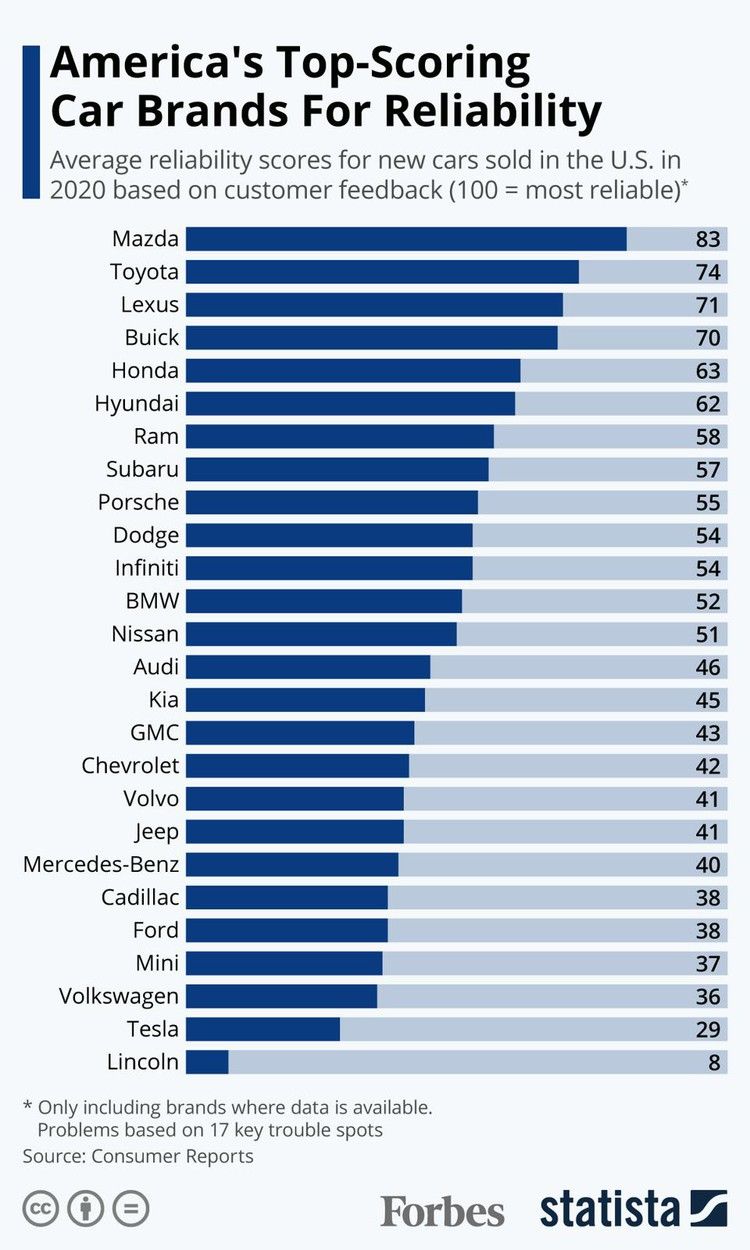What Brands Are Luxury Cars: A Comprehensive Guide to Automotive Excellence
What Brands Are Luxury Cars: A Comprehensive Guide to Automotive Excellence cars.truckstrend.com
In the world of automobiles, "luxury" signifies far more than just a means of transport. It embodies a meticulously crafted experience, a statement of prestige, and a testament to engineering prowess, exquisite design, and unparalleled comfort. A luxury car isn’t merely about getting from point A to point B; it’s about the journey itself – enveloped in premium materials, advanced technology, and a level of performance that transcends the ordinary.
Understanding what brands constitute the luxury car segment is crucial for anyone seeking to invest in this elevated automotive experience, whether for status, comfort, performance, or simply the sheer enjoyment of driving excellence. This guide will delve into the diverse landscape of luxury car brands, exploring what defines them, who the key players are, and what considerations should guide your choice.
What Brands Are Luxury Cars: A Comprehensive Guide to Automotive Excellence
The Hallmarks of a Luxury Automobile: Beyond the Badge
Before listing specific brands, it’s essential to understand the fundamental attributes that elevate a vehicle into the luxury category. These characteristics are woven into the very fabric of the car, distinguishing it from mass-market offerings:
- Superior Craftsmanship and Materials: Luxury cars feature interiors meticulously assembled from the finest materials: supple, hand-stitched leather, genuine wood veneers, real metal accents (aluminum, chrome, carbon fiber), and high-quality textiles. Attention to detail is paramount, from the precise alignment of panels to the satisfying click of every switch.
- Cutting-Edge Technology and Innovation: These vehicles are often pioneers in automotive technology, integrating advanced infotainment systems, sophisticated driver-assistance features (adaptive cruise control, lane-keeping assist, autonomous parking), state-of-the-art safety systems, and innovative connectivity options.
- Exquisite Performance and Refinement: Luxury cars typically boast powerful, smooth, and refined engines, often with multiple cylinders (V6, V8, V12) or advanced electric powertrains. The ride quality is paramount, characterized by exceptional noise insulation, sophisticated suspension systems that glide over imperfections, and precise handling that inspires confidence.
- Exclusive Ownership Experience: Owning a luxury car often comes with a premium service experience. This can include personalized sales consultations, dedicated service advisors, concierge services, extended warranties, and bespoke customization options that allow owners to tailor their vehicle to their exact preferences.
- Heritage and Brand Legacy: Many luxury car brands have a rich history spanning decades, even a century, built on a legacy of innovation, motorsport success, and a commitment to excellence. This heritage contributes significantly to the brand’s prestige and allure.

The Titans of Traditional Luxury
These brands have long dominated the luxury car market, setting benchmarks for quality, performance, and refinement.
- Mercedes-Benz (Germany): Synonymous with luxury, engineering excellence, and sophisticated design. Mercedes offers a wide range of vehicles, from comfortable sedans (C-Class, E-Class, S-Class) and versatile SUVs (GLC, GLE, GLS) to high-performance AMG models and an expanding line of electric EQ vehicles. They emphasize comfort, prestige, and advanced technology.
- BMW (Germany): Known for its "Ultimate Driving Machine" philosophy, BMW combines sporty performance with luxurious comfort. Their lineup includes agile sedans (3 Series, 5 Series, 7 Series), spacious SUVs (X models), and the high-performance M division, all characterized by engaging driving dynamics and cutting-edge technology.
- Audi (Germany): Part of the Volkswagen Group, Audi is celebrated for its "Vorsprung durch Technik" (Advancement through Technology), sleek, minimalist design, and the legendary Quattro all-wheel-drive system. Their range encompasses elegant sedans (A4, A6, A8), stylish SUVs (Q models), and performance-oriented RS models, alongside a growing e-tron electric family.
- Lexus (Japan): Toyota’s luxury division, Lexus has built a formidable reputation for exceptional reliability, refined comfort, serene interiors, and unparalleled customer service. Their lineup includes plush sedans (ES, LS), popular SUVs (RX, GX, LX), and F-Sport performance variants, often employing hybrid technology.
- Cadillac (USA): America’s quintessential luxury brand, Cadillac has undergone a resurgence, blending bold, distinctive styling with powerful performance and advanced technology. Key models include the iconic Escalade SUV, the performance-oriented CT5 sedan, and a growing emphasis on electric vehicles like the Lyriq.
- Genesis (South Korea): Hyundai’s relatively new luxury arm has quickly established itself as a formidable contender. Genesis offers striking design, sophisticated interiors, impressive performance, and a compelling value proposition. Their range includes the G70, G80, and G90 sedans, and the GV70 and GV80 SUVs.


Ultra-Luxury and Grand Tourers: The Pinnacle of Automotive Artistry
These brands occupy the very top echelon of the luxury market, offering unparalleled exclusivity, bespoke craftsmanship, and stratospheric price tags.
- Rolls-Royce (UK): The epitome of automotive opulence, Rolls-Royce vehicles are less about driving and more about being chauffeured in supreme comfort. Each car is a bespoke masterpiece, handcrafted to the owner’s specifications, offering unparalleled quietness, sumptuous materials, and an almost regal presence. Models include the Phantom, Ghost, and the Cullinan SUV.
- Bentley (UK): Blending British elegance with powerful performance, Bentley offers a unique blend of grand touring capabilities and exquisite luxury. Their vehicles are known for their handcrafted interiors, potent W12 or V8 engines, and a sophisticated, yet sporting character. Key models are the Continental GT, Flying Spur, and Bentayga SUV.
- Aston Martin (UK): Famous for its association with James Bond, Aston Martin builds luxurious sports cars and grand tourers with timeless design, exhilarating performance, and a distinctive British flair. Models like the DB11, Vantage, and DBS combine thrilling dynamics with sumptuous interiors.
- Maserati (Italy): Characterized by Italian flair, distinctive engine notes, and a blend of luxury and performance. Maserati offers a more sporting take on luxury, with models like the Quattroporte and Ghibli sedans, the Levante SUV, and the high-performance MC20 supercar.
Performance Luxury & Exotics: Speed Meets Splendor
While some brands above have performance divisions, these brands are inherently built on a foundation of high performance, seamlessly integrating luxury.
- Porsche (Germany): Though primarily known for its iconic sports cars like the 911, Porsche has successfully expanded into the luxury segment with models like the Panamera sedan, Cayenne, and Macan SUVs, and the all-electric Taycan. They combine thrilling performance and precise engineering with everyday usability and refined interiors.
- McLaren, Ferrari, Lamborghini (UK/Italy): While primarily supercar manufacturers, their vehicles command ultra-luxury prices due to their extreme performance, limited production, exotic materials, and bespoke customization options. Owning one is a statement of ultimate automotive passion and wealth.
The Rise of Electric Luxury: A New Era
The luxury segment is rapidly embracing electrification, with both established players and new entrants pushing the boundaries of technology and sustainable luxury.
- Tesla (USA): A pioneer in electric vehicles, Tesla’s Model S and Model X redefined electric luxury with long ranges, blistering performance, minimalist interiors, and cutting-edge software. While their "luxury" can be debated by traditionalists, their technological leadership is undeniable.
- Lucid Motors (USA): A newer entrant, Lucid Motors has made a splash with its Air sedan, boasting industry-leading range, ultra-luxurious interiors, and innovative technology, positioning itself as a direct competitor to traditional luxury EVs.
- Mercedes-EQ, BMW i, Audi e-tron: The traditional luxury giants are aggressively expanding their all-electric sub-brands (e.g., Mercedes-EQ EQS, BMW i7, Audi e-tron GT), bringing their hallmark luxury and engineering prowess to the EV landscape.
Important Considerations When Choosing a Luxury Car
Selecting a luxury vehicle involves more than just admiring the badge. Here are practical insights:
- Budget Beyond Purchase Price: Luxury cars come with higher insurance premiums, specialized maintenance costs, and often require premium fuel. Factor in depreciation, as some brands hold their value better than others.
- Lifestyle Needs: Consider how the car fits your daily life. Do you need spacious rear seats, a large cargo area, or specific performance attributes for commuting or weekend drives?
- Ownership Experience: Research the dealer network and service reputation in your area. A premium car should come with premium service.
- Test Drive Extensively: Drive various models from different brands to truly experience the differences in ride quality, handling, technology interface, and overall comfort.
- New vs. Certified Pre-Owned (CPO): CPO vehicles can offer significant savings while still providing warranty coverage and a rigorous inspection, making luxury ownership more accessible.
- Technological Aptitude: Be prepared for a learning curve with advanced infotainment and driver-assistance systems. Ensure the technology is intuitive and useful to you.
Luxury Car Brand Representative Price Range Table
This table provides a representative starting price range for various luxury car brands. Prices can vary significantly based on specific models, trim levels, optional features, regional taxes, and market conditions. These figures are illustrative and subject to change.
| Brand | Typical Entry-Level Model (Approx. MSRP Start) | Typical Flagship/High-End Model (Approx. MSRP Start) | Key Characteristics |
|---|---|---|---|
| Traditional Luxury | |||
| Mercedes-Benz | C-Class Sedan: $48,000 | S-Class Sedan: $118,000 | Sophistication, comfort, advanced tech, prestige |
| BMW | 2 Series Gran Coupe: $38,000 | 7 Series Sedan: $97,000 | Driving dynamics, sportiness, innovation |
| Audi | A3 Sedan: $36,000 | A8 Sedan: $92,000 | Sleek design, tech-forward, Quattro AWD |
| Lexus | IS Sedan: $42,000 | LS Sedan: $79,000 | Reliability, refined comfort, customer service |
| Cadillac | CT4 Sedan: $36,000 | Escalade SUV: $82,000 | Bold design, American luxury, comfort |
| Genesis | G70 Sedan: $41,000 | G90 Sedan: $89,000 | Value, elegant design, strong performance |
| Ultra-Luxury & Grand Tourers | |||
| Bentley | Bentayga SUV: $200,000 | Mulsanne (discontinued, Flying Spur now top): $215,000 | British elegance, powerful, exquisite craftsmanship |
| Rolls-Royce | Ghost: $340,000 | Phantom: $500,000+ | Unparalleled opulence, bespoke, handcrafted |
| Aston Martin | Vantage: $150,000 | DBS Superleggera: $330,000 | Timeless design, British sportiness, grand touring |
| Maserati | Grecale SUV: $65,000 | MC20 Supercar: $240,000 | Italian flair, distinctive sound, performance-luxury |
| Performance Luxury & EVs | |||
| Porsche | Macan SUV: $60,000 | 911 Turbo S: $230,000 | Sportscar DNA, precision engineering, usability |
| Tesla | Model 3 (base): $40,000 | Model S Plaid: $108,000 | EV pioneer, tech-centric, performance |
| Lucid Motors | Air Pure: $77,000 | Air Dream Edition: $170,000 | Longest range EV, ultra-luxurious, innovative |
Disclaimer: All prices are approximate MSRP for new models and can vary widely based on trim, options, and market conditions. They are provided for illustrative purposes only.
Frequently Asked Questions (FAQ) about Luxury Cars
Q1: What exactly makes a car "luxury" compared to a regular car?
A1: Luxury cars go beyond basic transportation, offering superior materials (real leather, wood, metal), advanced technology (cutting-edge infotainment, driver aids), refined performance (powerful, smooth engines, quiet ride), exquisite craftsmanship, and an exclusive ownership experience (premium service, personalization).
Q2: Are luxury cars always expensive to maintain?
A2: Generally, yes. Luxury cars use specialized parts and require highly skilled technicians, which can lead to higher maintenance and repair costs compared to mainstream vehicles. However, reliability has improved across many luxury brands, and proper maintenance can mitigate some costs.
Q3: Do luxury cars hold their value well?
A3: Depreciation varies significantly among luxury brands and models. Some, like certain Porsche or Lexus models, tend to hold their value better than others. Ultra-luxury and exotic cars can sometimes appreciate, but most luxury vehicles depreciate faster than mainstream cars in their initial years.
Q4: What’s the difference between a "premium" brand and a "luxury" brand?
A4: The distinction can be nuanced. "Premium" often refers to brands that offer higher quality, better features, and more refined experiences than economy cars, but might not reach the pinnacle of bespoke craftsmanship or exclusivity found in true "luxury" brands. For example, some might consider Acura or Infiniti "premium," while Mercedes-Benz or Rolls-Royce are unequivocally "luxury."
Q5: Is Tesla considered a luxury car brand?
A5: This is a debated topic. While Tesla’s higher price points, cutting-edge technology, and strong performance align with luxury attributes, some traditionalists argue that its mass-produced nature, minimalist interiors, and service model don’t always match the bespoke craftsmanship and white-glove service associated with traditional luxury marques. However, for many modern consumers, Tesla absolutely fulfills the luxury promise, especially with models like the Model S and X.
Conclusion
The world of luxury cars is a rich tapestry woven with threads of engineering marvel, artistic design, and a relentless pursuit of perfection. From the established German titans to the bespoke British artisans, and the innovative electric newcomers, each brand offers a unique interpretation of automotive excellence. Understanding what defines these vehicles – beyond their price tags – empowers you to make an informed decision that aligns with your values, lifestyle, and aspirations. Ultimately, choosing a luxury car is not just about owning a vehicle; it’s about investing in an experience, a statement, and a passion for the finest things on the road.




